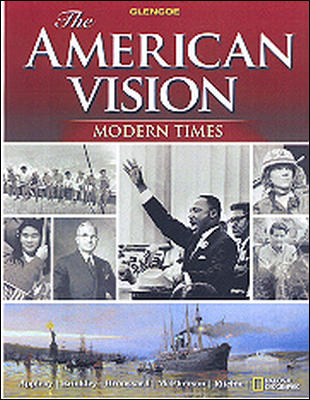
The American Vision Modern Times © 2010Chapter 22: Resurgence of Conservatism, 1980-1992Chapter OverviewsThis chapter describes the resurgence of conservatism in the 1980s that defined the Ronald Reagan and George Bush presidencies. At home a surge of economic activity fueled expansion, while overseas the Cold War came to a dramatic conclusion and a new threat emerged in the Middle East. Section 1 looks at conditions that fostered a new conservatism in the 1980s. In American politics, conservatives generally oppose government regulations, support free enterprise, and tend to embrace traditional values. In the years following World War II, conservatism began to rise. Cold War fears made many wary of any kind of economic welfare. In the 1960s and 1970s, many Americans grew to resent the high taxes and federal regulations that developed from the New Deal and Great Society programs. Social turmoil left many Americans yearning for a return to traditional values and order. Conservative ideas found new support in the Sunbelt, in the suburbs, and in evangelical Christians. By the late 1970s a new coalition of conservatives organized, unified behind the idea that government had gotten too powerful and that American society had somehow lost its way. Section 2 explores the conservative presidency of Ronald Reagan. With the 1980 election of Ronald Reagan, American politics took a turn to the right. Reagan applied his conservative ideas to change the face of the Supreme Court and to spur economic recovery. Believing that government intervention had created many of the nation's economic problems, Reagan began cutting taxes and deregulating industry. By 1983 the economy started to respond, and the United States began on a course of economic expansion. Massive defense spending, however, sent the deficit to record levels as the president aimed to support "peace through strength." Reagan backed his strong anti-Communist stance with military aid to guerilla groups in Latin America, the Caribbean, and the Middle East. During his second term, secret support of rebels in Nicaragua turned into a scandal. Even as his defense plan called for new weapons, Reagan succeeded in securing a nuclear weapons treaty with the Soviet Union that helped bring an end to the Cold War. Section 3 discusses American society in the 1980s. After late 1983, the economy began to revive, and the nation experienced a period of rapid economic growth. Aggressive young professionals, called yuppies, emphasized making money, accumulating goods, and getting ahead. Technology changed entertainment as cable and satellite television, MTV, and home video games made their way into Americans' homes. Drug and alcohol abuse remained serious problems even though First Lady Nancy Reagan advised youth to "Just Say No." In 1981 new health concerns developed when researchers identified a deadly new disease. Social activism continued through the 1980s as activists promoted the environment and fought world hunger, and older Americans voiced their opinions in the political arena. Section 4 focuses on the end of the Cold War. The Soviet Union's attempts at reforming its social and economic systems failed, and, in the 1980s, the Communist eastern bloc collapsed. By 1991 the Soviet Union was officially dissolved, and the world became increasingly unpredictable. President George Bush's foreign policy experience proved an asset during this period. Crises in China and Panama demanded his attention, as well. When lraq invaded Kuwait in 1990, Bush helped rally a large coalition to force lraq to leave. Bush asked the United Nations for assistance. Operation Desert Storm succeeded in expelling the Iraqis from Kuwait and made Bush very popular at home. While his foreign policy commanded broad support, Bush's domestic agenda did not. Recession and unemployment plagued the economy, and the deficit continued to grow. His reversal on a campaign promise turned many voters against Bush. In his 1992 presidential race against an Arkansas baby boomer and a third party candidate, the baby boomer won out. |  |















